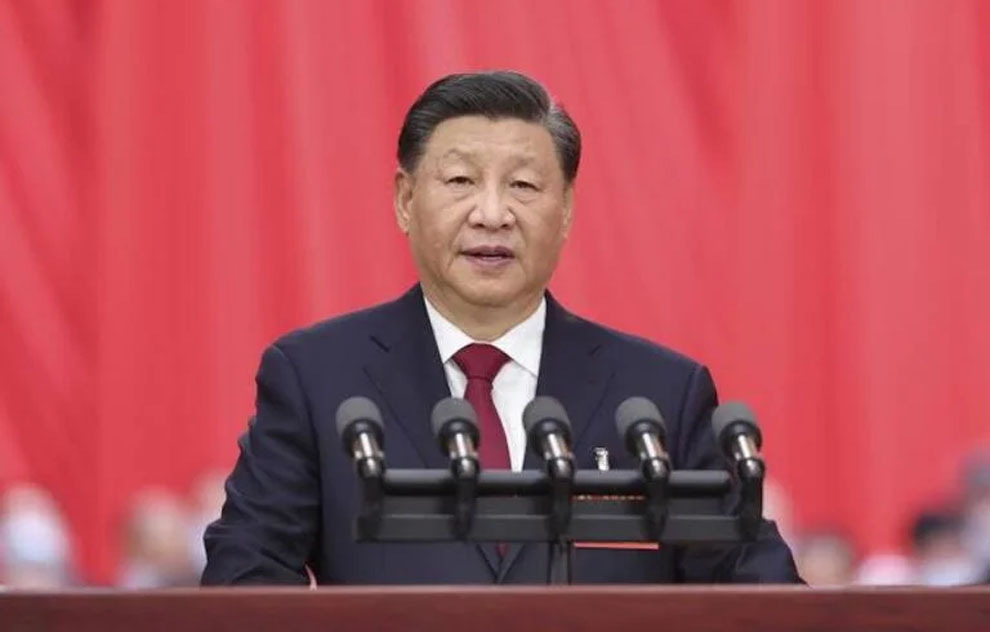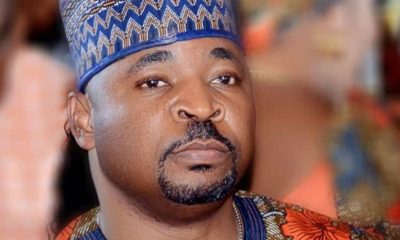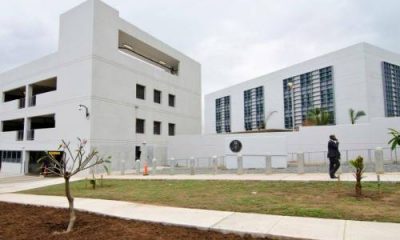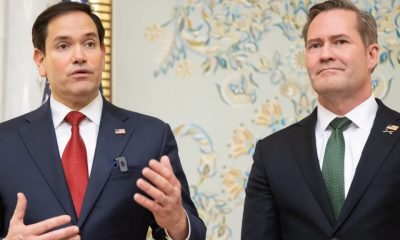International
How Russia forged closer ties with Africa

Russia has been expanding its influence in Africa in recent years and after the invasion of Ukraine, it will be expecting its new-found allies to provide support, or at least remain neutral, in international bodies such as the UN.
From Libya to Mali, Sudan, the Central African Republic (CAR), Mozambique and elsewhere, Russia has been getting more involved – often militarily with help fighting rebels or jihadist militants.
At the UN Security Council, Kenya, currently a non-permanent member, made its opposition to Russian action in Ukraine very clear.
But there has not yet been a loud chorus from other countries backing Kenya’s position. The continental body, the African Union, expressed “extreme concern” about what was going on, but was muted in its criticism of Russia.
South Africa, which is a partner of Russia in the Brics group, has called on the country to withdraw its forces from Ukraine but said it still held out hope for a negotiated solution.
On the other hand, CAR President Faustin-Archange Touadéra has been reported as backing Russia’s decision to recognise the Ukrainian regions of Donetsk and Luhansk as independent states.
And on Wednesday the deputy leader of the Sudanese junta, Mohamed Hamdan Dagalo, led a delegation to Moscow in a sign of closer ties between the two countries.
One of the clearest examples of how alliances have been shifting in Africa came just a week before Russia’s attack on Ukraine with the ending of French involvement in fighting jihadists in Mali.
READ ALSO:
- Fire Razes Shops At Ladipo Auto Spare Parts Market in Lagos
- Why it’s difficult to increase varsity lecturers’ salaries – FG
- Man strangles wife to death in Abuja, flees
Mali’s Prime Minister Choguel Maiga confirmed, in an interview with France24, that his country has signed military cooperation agreements with Russia. But he denied that the controversial Russian private military company, the Wagner Group, was involved.
This Russian help in Mali, along with a reported offer to the military government in Burkina Faso, fits a pattern over the past five years where Russia has intensified steps to increase its influence in Africa, both official and informal.
As the renewed Russia-Africa engagement gained momentum, a 2019 summit in the southern Russian city of Sochi was attended by delegates from over 50 African countries, including 43 heads of state.
President Vladimir Putin addressed the leaders, appealing to a history of backing liberation movements and pledging to boost trade and investment.
But there has also been another kind of presence: the opaque provision of security to governments in a number of African countries, in the form of training, intelligence and equipment, as well as involvement of Russian mercenaries in local conflicts.
As Mr Putin indicated, there are historic ties stretching back to the days of the USSR, Russia’s predecessor, when Africa was one of several spheres of competition between it and the US.
But from the collapse of the USSR in 1991 to the early part of the last decade, as Russia went through a period of transition, relations with Africa were not top of the agenda.
Then, regaining superpower status became a foreign policy priority for the Russian president.
In 2014, following Russia’s annexation of the Ukrainian peninsula of Crimea and the international sanctions which followed, there came a sharp deterioration in relations with the US and the European Union.
Faced with the threat of international isolation, Moscow started the search for new allies.
“As a result of sanctions, Russia needed to look for new markets for its exports,” said Irina Abramova, director of the Africa Institute at the Russian National Academy of Sciences.
But it was more than markets that Russia was after – it also wanted increased global influence.
In 2014 it got involved in Syria’s civil war, backing President Bashar al-Assad in part to highlight the mess the West was making and show how Russia could fix it.
From Syria it later moved on to the African continent.
Irina Filatova, an honorary professor of the University of KwaZulu-Natal in South Africa, says Russia’s key task in Africa was to discredit Western influence, in much the same way as in Syria.
It wanted to show that the Europeans, for example, had failed to contain the jihadist threat in the Sahel.
It did this through a dual policy in Africa, combining official military instructors working in some countries, and informal agencies, such as the Wagner Group, fighting in a number of others.
The CAR was the first African country where Russian mercenaries from the Wagner Group appeared in 2017.
Later they were followed by an official contingent of Russian military consultants. Their aim was to help President Touadéra stay in control.
Allegations of atrocities carried out by the mercenaries have become common, but Russia has consistently denied that any of its citizens were involved in war crimes or violence against civilians.
Russian mercenaries have also been active in Libya, Sudan, Mozambique and Mali, with varied levels of success.
In another sign of the growing significance of the continent, Africa has become a key market for Russia’s arms industry. Almost half of all the arms coming into Africa come from Russia, according to the country’s state arms export agency.
The main importers are Algeria and Egypt, but there have been new markets in Nigeria, Tanzania and Cameroon.
But there is also a prize for closer ties on the diplomatic front. Africa, in total, has more than a quarter of the votes at the UN General Assembly, and can be a powerful collective voice in other international bodies.
A 2021 report on perspectives of Africa-Russia cooperation, published by Moscow’s Higher School of Economics, pointed out that African countries have tended to be neutral when it comes to Russia’s actions in the past.
“None of the African countries introduced any sanctions against Russia [after 2014]. In the voting in the UN on Ukraine-related issues, most countries of the continent express a neutral position,” the report said.
With the invasion of Ukraine, if that neutral stance continues, or if it is translated into more vocal support, then Russia’s efforts over the past few years could be seen to have paid off.
MSN
International
UK records over 22,000 asylum-seeking Nigerians

UK records over 22,000 asylum-seeking Nigerians
The United Kingdom Home Office received 22,619 asylum petitions from Nigerian nationals between 2010 and 2024.
Nigerians accounted for one in every 30 UK asylum claims over the time, ranking 11th in the Home Office’s recently released year-end asylum and resettlement figures.
According to the Home Office, over two times as many Nigerians (2,841) requested asylum in 2024 than in 2023 (1,462).
Overall, 108,138 people applied for asylum in the UK in 2024, representing a 378 per cent increase from 2010. The majority were first-time claims by South Asian and Middle Eastern nationals.
Iran topped the chart with 75,737, perhaps pushed by the rising persecution of dissidents by the Iranian regime.
Pakistan trailed far behind with 57,621. In 2024, 10,542 Pakistanis sought asylum in the UK, prompted by post-election upheaval, rising inflation, and an increase in blasphemy cases, which human rights groups argue provide strong grounds for protection claims.
Afghanistan has received 54,363 asylum petitions since 2010. In 2024, 8,508 Afghans sought sanctuary in the United Kingdom, a development that experts suggest is a continuation of the Taliban’s ouster of the Karzai administration in 2022.
That year, 11,358 Afghans applied for asylum in the United Kingdom, with 9,710 applications the following year.
Others include Albania (50,944), Iraq (45,711), Eritrea (37,687), Syria (34,997), and Bangladesh (31,744). Asylum seekers from Bangladesh increased from 5,097 in 2023 to 7,225 in 2024. The rise corresponded with the removal of previous Prime Minister Sheikh Hasina.
READ ALSO:
- Driver crushes one-year old boy to death in Ekiti
- Bring your children to compete with mine, MC Oluomo challenges those mocking his spoken English
- Insecurity: Presidency questions push for state police, accuses govs of not doing much
Sudan and India complete the top ten, with 30,897 and 30,179, respectively.
Nigeria’s 22,619 filings are just ahead of Sri Lanka’s 22,059 and surpass Vietnam, China, and Turkey. Brazil, Kuwait, Yemen, Colombia, and Jordan were at the bottom of the list, with each providing fewer than 6,500 claims.
Analysts attribute Nigeria’s rise on the list to tough conditions such as insecurity, bandit assaults, abduction, and a collapse in household purchasing power following the naira’s devaluation in 2023.
In a conversation with our correspondent, Charles Onunaiju, Research Director, Centre for China Studies, Abuja, stated, “We face a difficulty. Nigeria is becoming unfriendly, particularly for young people with limited opportunities, and there is a desperate desire to travel overseas.
According to local reports, young professionals who previously entered the UK on skilled worker visas are increasingly hedging their bets by applying for asylum once there; others arrive irregularly via continental Europe, citing kidnapping threats and communal attacks in their affidavits.
According to the reports, in most cases, petitioners also claim political persecution under Nigeria’s wide cybercrime legislation or discrimination based on sexual orientation—both of which are protected under the Refugee Convention.
According to the Home Office’s website, an asylum seeker must demonstrate a “well-founded fear of persecution” because of their race, religion, nationality, political opinion, or membership in a certain social group.
The Home Office determines the initial decisions, and negative rulings can be challenged in the Immigration and Asylum Chamber.
In theory, the Illegal Migration Act of 2023 makes people who travel through a safe third nation inadmissible.
However, the UK government’s proposed removal process, particularly its contract with former Prime Minister Rishi Sunak to transfer claimants to Rwanda, is still enmeshed in legal obstacles.
As a result, the majority of 2024 and 2025 arrivals will continue to use the existing system.
Dr Aliyu Ilias, an Abuja-based development economist, told The PUNCH that as more Nigerians leave and stay permanently overseas, the country will have less trained labour.
He stated that with most Nigerians confronting both economic headwinds and deteriorating security at home, the British asylum route, however uncertain, still appears to offer a better prospect.
Ilias explained, “It’s definitely a cause of concern because this includes our professionals who are moving, and it takes a whole lot to train these professionals.
“In the medical sector, Nigeria subsidises a lot to get people trained. You cannot get trained as a medical doctor or an engineer abroad for a cheaper cost compared to what we get in Nigeria.
“So, it is total brain drain in the long run, and for the economy, it is reducing our GDP. The appalling part is that most of our Nigerian brothers and sisters who go out do not return. They get permanent residency, and they become valuable to the immediate country.”
UK records over 22,000 asylum-seeking Nigerians
International
Harvard University sues Trump over funding cuts

Harvard University sues Trump over funding cuts
Harvard sued US President Donald Trump’s administration Monday in a sharp escalation of the fight between the prestigious university and the Republican, who has threatened its funding and sought to impose outside political supervision.
Trump has sought to bring several prestigious universities to heel over claims they tolerated campus anti-Semitism, threatening their budgets, tax-exempt status and the enrolment of foreign students, but Harvard has refused to bow.
“This case involves the Government’s efforts to use the withholding of federal funding as leverage to gain control of academic decision making at Harvard,” the Ivy League university said in a lawsuit filed in a Massachusetts federal court that named several other institutions targeted by Trump.
“The Government’s actions flout not just the First Amendment, but also federal laws and regulations,” said the complaint, which called Trump’s actions “arbitrary and capricious.”
Trump is furious at Harvard for rejecting government supervision of its admissions, hiring practices and political slant and last week ordered the freezing of $2.2 billion in federal funding to the storied institution.
The lawsuit calls for the freezing of funds and conditions imposed on federal grants to be declared unlawful, as well as for the Trump administration to pay Harvard’s costs.
Trump and his White House team have publicly justified their campaign against universities as a reaction to what they say is uncontrolled “anti-Semitism” and a need to reverse diversity programs aimed at addressing historical oppression of minorities.
READ ALSO:
- NNPCL: Ojulari’s ambitious five-year $60bn investment agenda
- Osimhen to rake in N136bn from Man United
- U20 AFCON: Flying Eagles tackle Young Pharaohs in friendly
The administration claims protests against Israel’s war in Gaza that swept across US college campuses last year were rife with anti-Semitism.
Many US universities, including Harvard, cracked down on the protests over the allegations at the time, with the Cambridge-based institution placing 23 students on probation and denying degrees to 12 others, according to protest organizers.
“Harvard can no longer be considered even a decent place of learning, and should not be considered on any list of the World’s Great Universities or Colleges,” Trump said on his Truth Social platform last week.
“Harvard is a JOKE, teaches Hate and Stupidity, and should no longer receive Federal Funds.”
International
China warns countries against trade dealings with US

China warns countries against trade dealings with US
China on Monday issued a stern warning to countries considering new economic agreements with the United States, cautioning against doing so at Beijing’s expense as tensions deepen in the ongoing Sino-U.S. trade war.
In a statement, China’s Commerce Ministry accused the United States of weaponizing tariffs and undermining fair trade practices.
“Beijing will firmly oppose any party striking a deal at China’s expense and will take countermeasures in a resolute and reciprocal manner,” the ministry said.
The warning follows a Bloomberg report suggesting that the Trump administration is preparing to pressure countries seeking tariff reductions or exemptions from the U.S. to curb trade with China. The reported strategy may include monetary penalties for nations that fail to comply.
On April 2, President Donald Trump announced sweeping new tariffs targeting dozens of countries. While some nations were granted a pause, China faced the harshest measures, with tariff rates on its exports rising to 145%. In response, Beijing imposed retaliatory tariffs of 125% on U.S. goods, though it signaled last week it would not raise them further for now.
“The United States has abused tariffs on all trading partners under the banner of so-called ‘equivalence’, while also forcing all parties to start so-called ‘reciprocal tariffs’ negotiations with them,” a ministry spokesperson said.
Despite the rising tensions, China’s Commerce Ministry stressed that it remains committed to defending its economic interests. “China is determined and capable of safeguarding its own rights and interests, and is willing to strengthen solidarity with all parties,” it stated.
READ ALSO:
- Breaking: Pope Francis dies at 88 – Vatican
- Nigerian banks generated N14tn from loans – Report
- How Nigerian hotelier died during wife’s 60th birthday celebration
Commenting on the geopolitical tug-of-war, Bo Zhengyuan, a partner at China-based consultancy Plenum, said: “The fact is, nobody wants to pick a side. If countries have high reliance on China in terms of investment, industrial infrastructure, technology know-how and consumption, I don’t think they’ll be buying into U.S. demands. Many Southeast Asian countries belong to this category.”
Beijing plans to convene an informal United Nations Security Council meeting this week to spotlight what it calls Washington’s “bullying” and to accuse the U.S. of casting “a shadow over the global efforts for peace and development” by turning tariffs into a tool of coercion.
Meanwhile, U.S. Trade Representative Jamieson Greer recently disclosed that nearly 50 countries have approached Washington to discuss the impact of the new tariffs. Several bilateral negotiations are underway. Japan is reportedly considering increasing soybean and rice imports from the U.S., while Indonesia may scale up its purchases of American food and commodities while reducing orders from other countries.
Trump’s hardline tariff stance has caused jitters across global markets, raising concerns about a potential slowdown in international trade. Despite the rhetoric, Chinese stocks posted marginal gains on Monday, though investor sentiment remains cautious.
In a broader move to challenge China’s technological and industrial ascent, the U.S. has also imposed port fees on China-built vessels and tightened export curbs on AI chips. Nvidia recently revealed it would incur a $5.5 billion loss due to the administration’s restrictions on chip exports.
In response, Chinese President Xi Jinping embarked on a diplomatic tour across Southeast Asia last week to rally support for open trade. He emphasized unity and resistance to unilateralism, urging partners to reject coercive trade tactics.
“We are tearing down walls and expanding our circle of trading partners,” Xi declared, emphasizing China’s resolve to deepen regional ties.
Southeast Asian nations face a particularly delicate balancing act. ASEAN remains China’s largest trading partner, with bilateral trade hitting $234 billion in Q1 2025—16% of China’s total foreign trade. Meanwhile, ASEAN’s trade with the U.S. was worth approximately $476.8 billion in 2024, making Washington its fourth-largest trade partner.
“There are no winners in trade wars and tariff wars,” Xi wrote in an article published in Vietnamese media, carefully avoiding direct mention of the United States.
China warns countries against trade dealings with US
-

 International2 days ago
International2 days agoBreaking: Pope Francis dies at 88 – Vatican
-

 metro2 days ago
metro2 days agoHow Nigerian hotelier died during wife’s 60th birthday celebration
-

 metro1 day ago
metro1 day agoBring your children to compete with mine, MC Oluomo challenges those mocking his spoken English
-

 Politics3 days ago
Politics3 days agoMalami, others in CPC started plotting against Tinubu in 2024 — Obono-Obla
-

 metro19 hours ago
metro19 hours agoRivers: Tinubu meets with Fubara, may lift his suspension
-

 Business1 day ago
Business1 day agoMarketers count losses as NNPC slashes petrol price
-

 News2 days ago
News2 days agoTinubu returns to Nigeria after France, UK trip
-

 metro2 days ago
metro2 days agoAnsar-Ud-Deen Society of Nigeria elects new leaders, Tinubu praises educational contributions













